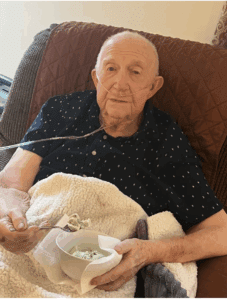Originally published on the NALGAP-Addiction Professional Blog, August 2016
Nothing makes my stomach turn quite so vigorously as when I see a helping professional make public social media posts supporting right wing causes or candidates. One moment in particular stands out. A psychologist who attended one of my trainings on trauma-informed care, complimenting me as an expert in my subject matter soon revealed himself as a second amendment warrior on social media. His gospel devotion to second amendment rights in and of itself didn’t bother me. Rather, his public shaming of trauma survivor Rep. Gabrielle Giffords using a word that rhymes with bunt sent me into a tailspin. How could he possibly work with survivors of trauma and violence, particularly female survivors, if these are his true beliefs?
The interplay between a professional’s personal values and showing therapeutically appropriate amounts of empathy, unconditional positive regard and compassion is discussed in most graduate ethics classes and continuing education seminars on ethics. I’ve consistently learned that you bring who you are into your clinical role, and your values shape who you are. Thus, the expectation to be “value free” is not realistic. However, part of being ethical is committing not to impose you value judgments on your clients. Doing this, whether directly or indirectly, overtly or covertly, can negatively impact the therapeutic alliance. As providers committed to providing affirming and responsive services to members of the LGBT+ communities, assuring for such ethical practices in our clinical services is important and part of our commitment to craft spaces that are as safe as possible for members of our communities to seek services. The attention stirred by the national Presidential election is forcing us to re-evaluate with renewed vigor the importance of how a provider’s personal beliefs may impact their ability to offer affirming services.
And yes—engaging in such self-evaluation is a two-way street if we are considering the traditional Republican vs. Democrat binary in this discussion. We must consider this multi-faceted nature of such issues in our self-examination. I once had a client, after several sessions of general rapport building hopefully leading to some meaningful trauma work go all “Barack Hussein Obama” on me. The client voiced their beliefs that Obama was a vicious Muslim who would be ushering in the end times and many other standard tenants of attacks against the President fresh off of a conspiracy theorist website. As someone who respects President Obama and voted for him twice, hearing this was difficult. I kept breathing and trying to maintain my commitment to walking in my clients’ shoes as an expression of empathy. I asked questions like, “How does all of this affect you?,” and “What do these beliefs mean to you?”
Then my client dropped the bomb: “Well what do you believe, Jamie?”
As I took a breath, a million clinical judgment questions and decision-making issues flooded me at once. Do I lie to maintain the rapport? Should I be honest in the spirit of authenticity? Do I ask why it matters to her? Should I directly confront her excuse making (i.e., blaming President Obama for her life being miserable)?
For better or worse, what ultimately came out was, “Well, my beliefs are different than yours. I hope that doesn’t get in the way of us still working together to help you reach your goals.”
The client persisted, “It doesn’t bother you that he’s a Muslim?”
At that point I wondered how they would react upon learning that I have several close friends, colleagues, and former students I highly regard who are Muslim. To be clear, I love and respect them all immensely! Then I wondered how the client would respond upon learning that I’m bisexual—or that I stopped going to institutional church years ago—the list went on!
I deferred to, “Please help me understand ho my answer to that question might impact us working together.”
From what I recall, this invitation ushered in a decent conversation. The client ultimately continued to work with me and engage somewhat in therapy. Yet any time I saw their name appear on my schedule I knew that I needed to do some extra breathing, shielding, and praying in preparation for the session. I sought extra supervision and consultation to make sure I kept my values and judgments as bracketed as possible in order to work with this client. Yet looking back on it now, I wonder if I offered the client the best care possible, or if I should have been more adamant about referring.
Most ethical codes in the helping professions instruct that if you cannot provide the best care possible for a client, it is your ethical obligation to make several referrals. If no reasonable referral options are available, which is likely in rural or sparsely populated areas, it is your responsibility as the helper to work through your biases in order to provide service. The nuances of this ethical teaching have been up for discussion since Tennessee passed a bill allowing clinical treatment providers to deny services to LGBT-identified clients based on religious grounds. Once of my first gut-level reactions was that I wouldn’t want a therapist who would play the religious beliefs card to see a member of my community in the first place. My hope would be that such helpers would have the good sense to refer. Yet the issue remains that in some areas referrals may not be an option. In these cases it is the provider’s ethical responsibility to set aside their biases—even if they are justified by a deep moral or religious conviction—to offer care when care is sought. Quality care involves being empathetic, and even if you work in a setting that has a faith-based tone in its mission statement, if you carry a state license in a major helping profession it is your responsibility to do no harm.
Of course doing no harm can be a challenge when obvious value differences exist between client and therapist. Yet whether you are aware of it or not, you (as the helper) are in the position of power and must be cognizant of how your words can hurt. During a recent presentation I delivered to a group of community providers on the topic of spiritual abuse and addiction treatment, the wounds caused by church structures on many members of the LGBT community inevitably surfaced for discussion. An audience member challenged me, “Homosexuality is a sin though. I don’t care what you say, that’s biblical.”
Naturally I wanted to rage—my blood boiled as I was reminded of the religious intolerance that harmed me greatly in my youth and early adulthood. After that much needed breath I responded, “I am not here to debate Biblical interpretation with you. I will say that it is your responsibility as a professional to recognize how your Biblical interpretations may surface in how you interact with clients. And take a moment to consider how that may be affecting the client.”
I could have just as easily replaced Biblical interpretation with political beliefs… the idea is the same. Know your self, evaluate how your beliefs may come out in your clinical work, walk a mile in the client’s shoes, and develop a plan accordingly. Its election season—now is the best possible time to engage in this important self-inquiry.















2 Responses
Just your need to write this left wing point of view is no better than those writing their right wing point of view. The Oct 7 th massacre in Israel should have taught you something towards your support of the man that supported and still supports Iran.
Your article helped me a lot, is there any more related content? Thanks!